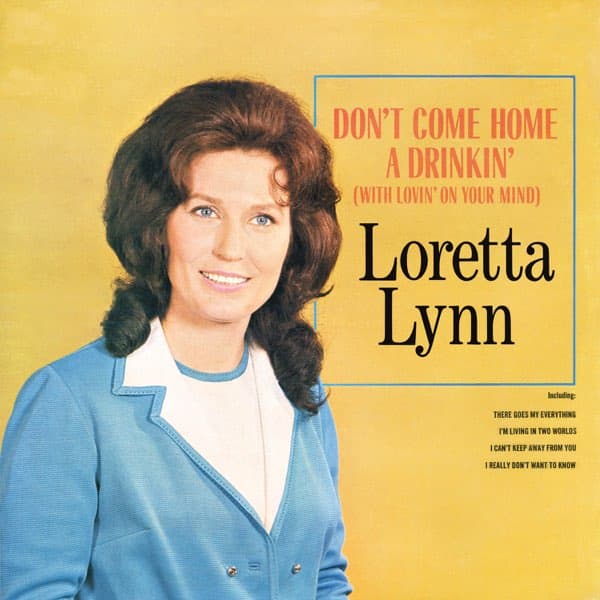
The Song That Gave Women Their Voice in Country Music
When Loretta Lynn released “Don’t Come Home A-Drinkin’ (With Lovin’ On Your Mind)” in late 1966, country music changed forever. By February 1967, the song had climbed straight to No. 1 on the Billboard Hot Country Singles chart, marking Lynn’s first chart-topper and establishing her as more than just another voice in Nashville—she became a fearless truth-teller. At the time, women in country music were often confined to songs of heartbreak, longing, or devotion. But here was Loretta, a coal miner’s daughter from Kentucky, boldly confronting the realities of domestic life with lyrics that had rarely, if ever, been put to record.
This wasn’t a love ballad wrapped in sweetness—it was a warning, a demand for respect. The message was as sharp as the title itself: if you come home late and drunk, don’t expect tenderness. For countless women, especially in small towns and rural America, the song captured a frustration they had long kept silent. Lynn had tapped into something raw and unspoken, and in doing so, she not only connected with her audience—she empowered them.
The single became the first gold record ever awarded to a female country artist, selling over 500,000 copies at a time when that milestone was almost unheard of for women in the genre. It was included on the 1967 album of the same name, which also reached No. 1 on the Billboard Country Albums chart, cementing her rise as the leading female voice of the decade. This was not just commercial success—it was cultural impact.
The story behind “Don’t Come Home A-Drinkin’” was deeply personal. Loretta Lynn was no stranger to the struggles of marriage; her own relationship with Oliver “Doolittle” Lynn was tumultuous, marked by drinking, arguments, and reconciliation. Rather than bury these realities, she transformed them into music that resonated with women who lived parallel lives. She often joked in interviews that she sang about what women were thinking but didn’t dare say out loud. And in this song, she gave them their anthem.
For older listeners, the power of Loretta Lynn’s delivery remains unforgettable. There’s no hesitation in her voice, no trace of submission—only a clear, proud tone that refuses to bend. It was country music with grit, a far cry from the polished Nashville sound that tried to soften rough edges. In a way, the song was a declaration that women’s perspectives could no longer be ignored, either in the home or on the radio.
Looking back, “Don’t Come Home A-Drinkin’ (With Lovin’ On Your Mind)” stands as more than a hit single—it is a milestone in country music history. It reminds us of a time when one woman’s courage to speak the truth turned into a chorus for millions, echoing long after the jukebox stopped spinning.